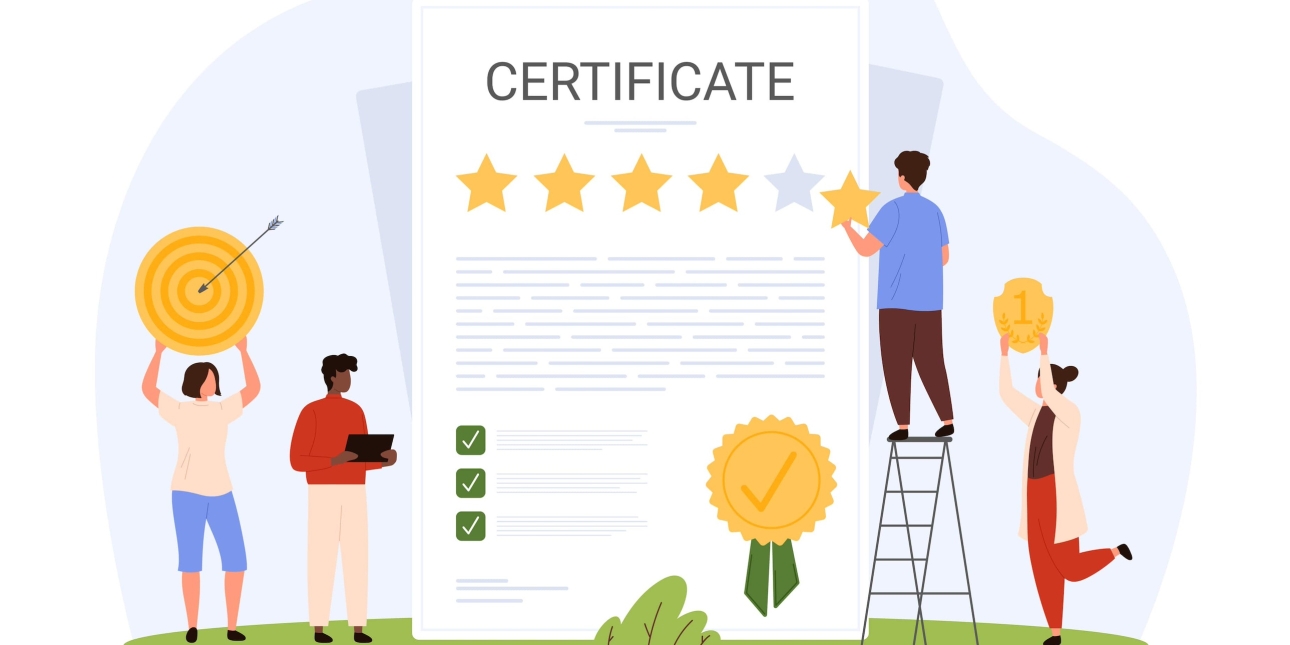Four real life stories of social mobility in public relations
On Social Mobility Day, PR practitioners tell us how they've benefited from the not-for-profit Socially Mobile programme
‘Shared experiences help students to believe their potential and worth’
Graduate Leanne Hughes examines why Socially Mobile is successful in changing the career prospects of those who apply
 Social mobility as a term is certainly drawing a lot of attention and discussion in the comms and PR world. As a graduate of the first Socially Mobile (leadership management) course cohort, the impact on my personal professional progression continues two years on.
Social mobility as a term is certainly drawing a lot of attention and discussion in the comms and PR world. As a graduate of the first Socially Mobile (leadership management) course cohort, the impact on my personal professional progression continues two years on.
The quality of the teaching on the course allows students to learn from the very best in the industry. The content is perfectly blended to give an excellent grounding in all the areas of PR and communications they will need to progress in their career. But, it offers so much more than that.
I guess you'd expect the students who apply to have a fair bit in common in terms of their values, background and career opportunities. During the course, they pause to examine and understand some of the internal and external blockers to their progress. These shared experiences start to help students to unlock and believe their potential and their worth.
That's a pretty powerful gift to give back to the PR industry. Diverse backgrounds and approaches as well as a tangible tenacity to deliver.
For myself, after graduation, I believed I could obtain CIPR Chartership and coach many peers through theirs. I believed that I could write and publish my first CIPR research project. Most of all, I started to believe my worth and my potential and continue to progress in life and career. Happy Social Mobility Day!
‘Socially Mobile killed the cynic in me’
When Beth Broomby applied for a free place on Socially Mobile, she wondered how genuine the offer was. Here she talks about her experience and how she and her fellow cohorts believe the programme has the power to diversify PR leadership and make opportunities accessible to all.
 ‘What’s the catch?’ I wondered looking at the training offer from Socially Mobile. ‘And why are all these extremely knowledgeable professionals going out of their way to support me? Do they really want to make a difference to diversity in the industry or is this all just a little too good to be true?’
‘What’s the catch?’ I wondered looking at the training offer from Socially Mobile. ‘And why are all these extremely knowledgeable professionals going out of their way to support me? Do they really want to make a difference to diversity in the industry or is this all just a little too good to be true?’
People say PR is an optimistic profession. I can only apologise and blame the fact I used to be a journalist because week one and I was feeling, frankly, a little perturbed.
Fortunately, there was very little time to ponder before we were off - a cohort of strangers bonding rapidly as we navigated our way through academic theory, models and frameworks, best practice, tailored advice, inspiration, encouragement, assignment after assignment and frankly the most realistic (read terrifying) crisis communications exercise imaginable.
It was a lot. It was also incredible. The ‘Tough Mudder’ of PR training courses, just as fast and furious but with a little more reading. Each week brought fresh challenges and deeper understanding. Each week at least one of us sent a message to our peer group convinced we’d not make it over the next hurdle. But we did.
Months later we met in real life like old friends in a London pub to toast our success and imagine a future where the accents and backgrounds, gender, and ethnicities at the top of our profession looked and sounded a little different. It felt, and still feels, possible.
Socially Mobile killed the cynic in me because the people associated with this programme aren’t just shining a light on the need for greater diversity, they are actively doing something about it with focus and consistency, while building cohorts of people prepared to do the same.
This programme matters. It opens doors. And guess what? There was never a catch.
‘Socially Mobile wraps its arms around you’
Not expecting to be accepted, Lynne Carstairs thought she’d made a mistake applying for a fully funded place on Socially Mobile. Instead, the programme has stretched and developed her in unexpected ways, providing new skills, an expanded network and optimism for the future.
 I found Socially Mobile through a former colleague and tentatively applied, with no real expectation, and promptly forgot about it.
I found Socially Mobile through a former colleague and tentatively applied, with no real expectation, and promptly forgot about it.
When I got the email, some weeks later, telling me I was ‘in’, I panicked as along came my good friend, imposter syndrome.
Despite, or maybe because of, 26 years in local government comms, five before that in journalism, I feared I would be out of my depth, as well as old enough to be everyone’s mum. What if I couldn’t keep up, didn’t understand or was just plain not good enough? Or worse, maybe I’d be the first person to fail, and I’d never work in this town again…
But I’m here, on the other side, having graduated earlier this year, with distinction, and Socially Mobile feels like a team I’m really proud to call myself a member of.
Founders Sarah and Stephen Waddington are comms superstars with experience, flair, energy, and enthusiasm that you just want to soak up and take with you. Together with a fantastic and inspiring team of industry professionals and experts, they have created a training programme that genuinely wraps its arms around you and sends you out the other side a better, more creative, more confident individual.
And they do it so that older participants like me, those with disabilities (also me), and many more colleagues across the profession who are notoriously under-represented, can take that little but meaningful step up on to that elusive level playing field.
I am sure each cohort will say this, but I met some lovely people from all walks of life, with myriad stories to tell and experience in abundance. Each more than capable and with so much to offer, but not always, for many reasons, confident in that ability, or able to progress as they might want.
Socially Mobile from its very inception is set up to understand, reflect and challenge that, while nurturing talented people from across the UK who in our industry remain underrepresented.
The learning, the focus and the support are second to none as compared to any other training I have taken part in, and it lasts long after graduation.
This training programme is unique, and so needed. It’s damn hard work, makes you want to tear your hair out at times, and will challenge most of what you thought you knew, whether longer in the tooth like me, or starting out in a comms career.
I have new professional contacts for life, a whole new team of colleagues, mentors and even friends to call on, and a genuinely renewed hope that, ‘even at my age’ the only barrier to future growth and success is my now (much quieter) imposter syndrome. I could not recommend it more.
‘Socially Mobile is the best training ground which enables people to flourish’
Until Catherine Hancock entered the workforce, she hadn’t appreciated the different barriers and opportunities that face people from different backgrounds. Spotting that Socially Mobile aims to level the playing field, she applied and hasn’t looked back.
 When I first saw the Socially Mobile programme advertised in 2022, I wrote my application but I didn’t submit it. I didn’t feel confident that I would pass the course - my grades at school were average or below average, and I was unsure if I fitted the criteria for the course for a fully funded place.
When I first saw the Socially Mobile programme advertised in 2022, I wrote my application but I didn’t submit it. I didn’t feel confident that I would pass the course - my grades at school were average or below average, and I was unsure if I fitted the criteria for the course for a fully funded place.
I guess that’s the thing about social mobility. If you have grown up in an environment such as a lower socio-economic background, it might not be until you’re in further education or are in work that you start realising that not everyone is from the same background as you. Not everyone is given the same opportunities and that is unfair. For a long time, I thought everyone had free school meals and that being the first one in your family to go to university was just purely a generational thing.
Before moving into a different role, I worked in the NHS which I enjoyed. However, like many other places, there wasn’t funding available to pay for external training. If I wanted to increase my skills and go on a course, I had to make the decision to pay for it myself, which I did. I made financial sacrifices for this. In the end I couldn’t afford to keep doing that and so I put my professional development on hold for a time.
When I eventually applied for the Socially Mobile programme last year and I was accepted for a fully funded place, I was delighted. Part of me thought it was too good to be true, 10 weeks of learning for free? What’s the catch?
But I soon discovered that the programme set up by Sarah and Stephen Waddington is so more than just a course. It is a community. It’s a movement of people who want to continue their professional learning and who want to make the industry a better place – with no restrictions or judgment on what their background is. Sarah and Stephen have both made this possible and it’s incredible.
Described as a SAS style course, it is just that. It’s quick, it’s fast paced and it’s hands on. But most importantly, it’s practical which means you can put the skills you learn into practice straight away. It is the best training ground which enables people to flourish.
The Socially Mobile programme has opened up so many doors for me, including for the first time in my career at the ripe age of 30 something (early 30s!), I have the opportunity to network and build my professional network.
The course has enabled me to grow in confidence. I feel more strategic in the way I work and it gave me the opportunity to learn from some of the leading professionals in the PR industry on a range of topics from finance, to planning and evaluation, and leading high performing teams. I wouldn’t have been able to access any of this without this programme.
The Socially Mobile programme is the gift that keeps on giving, with opportunities to speak at events, go to conferences, continue networking, and carry on with your professional development.
The programme is crucial to the industry because it makes the workforce a richer and more diverse place. It creates a pipeline of people who have learnt from the best in the industry. It has gathered a group of likeminded people who want to progress and continue learning. All of whom have different views, skills and experiences.
It gives everyone the chance to be equal to their peers – no matter who you are and this should be championed.
Discover more about the opportunities available from Socially Mobile and how the PR profession can support it.

